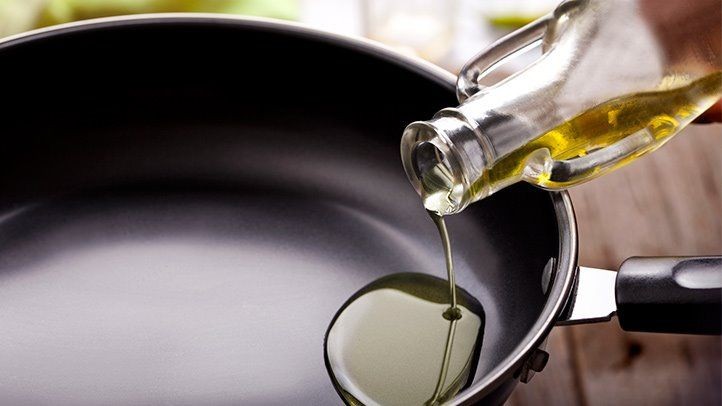Cooking oil is a kitchen essential globally, used for frying, baking, and various culinary purposes. However, once used, its proper disposal becomes crucial for environmental preservation. Incorrect disposal can cause substantial environmental harm, but it brings several environmental advantages when handled correctly. In this blog, we’ll explore nine significant benefits of environmentally responsible cooking oil disposal.
1. Prevents Water Pollution
Incorrectly disposing of cooking oil, like pouring it down drains, can cause significant water pollution. The oil forms a film on water surfaces, blocking the sunlight and oxygen aquatic plants and animals need. It also attaches to water particles, hindering natural filtration processes and worsening water quality. Properly disposing of cooking oil helps maintain the cleanliness and health of lakes, rivers, and oceans, safeguarding water as a vital resource for all life forms.
2. Protects Marine Life
When cooking oil enters waterways, it poses grave threats to marine life. The oil can coat birds’ feathers and mammals’ fur, impairing their insulation and buoyancy. This makes it hard for them to regulate body temperature, risking hypothermia or drowning. Fish and other aquatic creatures may ingest the oil, causing poisoning and death. Moreover, oil in water disrupts the food chain; smaller organisms suffer first, affecting larger predators afterwards. Proper disposal methods, like recycling or designated drop-off points, prevent oil from reaching these vulnerable ecosystems.
3. Reduces Sewer Blockages
Pouring cooking oil down the drain can cause serious blockages in sewage systems. Oil can solidify and mix with other debris, forming fatbergs that clog pipes and cause sewage overflows. These overflows can contaminate local water supplies and spread harmful bacteria and pathogens, leading to environmental damage. Maintaining sewer system integrity not only prevents these problems but also lowers the costs and energy needed for sewage treatment. Properly disposing of cooking oil ensures wastewater treatment plants operate efficiently, safeguarding our water resources.
4. Minimises Landfill Waste
When cooking oil is discarded, it typically ends up in landfills, where it decomposes slowly and may release harmful substances into the soil and groundwater. The anaerobic breakdown of oil in landfills can also generate methane, a potent greenhouse gas contributing to climate change. Recycling cooking oil into biodiesel or using designated disposal facilities can reduce landfill waste and minimise the risk of soil and water contamination.
5. Promotes Biodiesel Production
Recycling cooking oil into biodiesel is highly eco-friendly. Biodiesel is a renewable energy source that decreases greenhouse gas emissions and reduces reliance on fossil fuels. It can be used in diesel engines with minimal adjustments, offering a viable alternative to conventional fuels. Canola oil manufacturers play a significant role in this process by providing a steady supply of canola oil, which is an excellent feedstock for biodiesel production. By donating your used cooking oil for biodiesel production, you’re promoting a cleaner, more sustainable energy future. This process also cuts down on the environmental impact of extracting and refining fossil fuels, supporting a circular economy.
6. Enhances Soil Health
Improperly disposed cooking oil can contaminate soil, harming plants and reducing fertility. Oil forms a hydrophobic barrier, blocking water from reaching plant roots and causing soil erosion and degradation. Proper recycling of cooking oil prevents contamination, preserving healthy, productive soil essential for agriculture. Healthy soil supports crop growth, provides nutrients, and preserves natural habitats, fostering biodiversity in both rural and urban areas.
7. Prevents Wildlife Harm
Improper disposal of cooking oil is often mistaken for food by wildlife, leading to severe health problems or death. Ingesting oil can cause digestive issues, liver damage, and other health complications. Oil contamination of natural habitats can make it challenging for animals to access clean water and food sources. Proper disposal practices prevent cooking oil from harming wildlife, safeguarding biodiversity and maintaining healthy ecosystems. Protecting wildlife is crucial for ecological balance and the overall health of our planet’s ecosystems.
8. Supports Waste Management Systems
Proper cooking oil disposal supports efficient waste management systems. When you take used oil to recycling centres or designated disposal points, you enhance the effectiveness of local waste management programs. This approach helps communities handle waste sustainably and minimises environmental impacts. Efficient waste management is essential for reducing pollution, conserving resources, and promoting public health. By supporting these systems through correct cooking oil disposal, you also foster the growth of innovative waste management solutions and infrastructure.
9. Encourages Sustainable Practices
Properly disposing of cooking oil is crucial for promoting sustainable practices. When individuals and businesses prioritise responsible waste management, they set a positive example that encourages others to follow suit. This collective effort can yield substantial environmental benefits and cultivate a culture of sustainability. Making mindful decisions about how we dispose of cooking oil and other waste helps minimise our environmental footprint and supports a sustainable future. Embracing sustainability in daily practices nurtures a sense of environmental stewardship and can catalyse broader systemic improvements for the benefit of our planet.
Conclusion
Properly disposing of cooking oil is a straightforward yet powerful method to safeguard the environment. It prevents water pollution, protects wildlife, reduces landfill waste, and promotes renewable energy, all contributing to a healthier planet. Embracing these practices not only benefits the environment but also cultivates a culture of sustainability and responsibility in our communities. By committing to responsible cooking oil disposal, you play a role in creating a cleaner, greener future. Understanding these benefits and taking proactive measures enables us to collectively make a significant impact in preserving our natural world for future generations.

